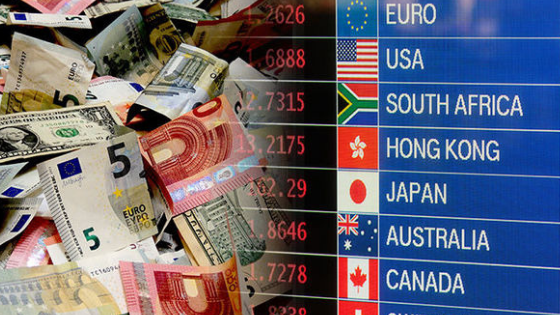Editors note: Trade intervention policy is now shifting to include currency.
The Trump administration is proposing tariffs on goods from countries found to have undervalued currencies, in a move that would further escalate its assault on global trading rules.
[Shawn Donnan and Jenny Leonard | May 23, 2019 | Bloomberg]
The proposal, laid out in a Federal Register notice released on Thursday, would let U.S.-based companies seek anti-subsidy tariffs on products from countries found by the U.S. Treasury Department to be engaging in competitive devaluation of their currencies. Currently no country in the world meets that criteria.
But it also sets a broader standard by focusing on the “undervaluation” of currencies.
President Donald Trump has long threatened to label China a currency manipulator and his administration has been examining how to take a more aggressive approach to what is now a largely technical exercise by Treasury to determine whether any currency manipulation has taken place.
“This change puts foreign exporters on notice that the Department of Commerce can countervail currency subsidies that harm U.S. industries,” Commerce Secretary Wilbur Ross said in a statement. “Foreign nations would no longer be able to use currency policies to the disadvantage of American workers and businesses.”
The notice released by the Commerce Department, which administers the quasi-judicial process that determines the imposition of what are known as “countervailing duties,” says it would defer to Treasury in determining whether any currency was deemed undervalued.
It also specifically says the move is not aimed at any central bank action that results in currency swings.
“In determining whether there has been government action on the exchange rate that undervalues the currency, we do not intend in the normal course to include monetary and related credit policy of an independent central bank or monetary authority,” Commerce said.
The move would be a major departure from past U.S. tariff policy, according to Scott Lincicome, an international trade lawyer and adjunct scholar at the Cato Institute. Over the past decade American companies have tried multiple times to get the Commerce Department to count a weak currency as a subsidy.
“It’s opening the door to additional tariffs on any goods from any country found to have an undervalued currency,’’ Lincicome said.
Resurgent Hawks
According to people familiar with the administration’s internal deliberations, the move to include the new currency tool has been pushed by Ross and White House trade adviser Peter Navarro since the early days of the Trump presidency.
The issue had been lying dormant for awhile before it rose to the top of the Trump team’s trade discussion again in recent weeks, a person familiar with the matter said. The inter-agency debate leading to the issuing of the proposal was heated, the person said.
That it is now advancing is a sign of the resurgent power of trade hawks in the administration as the White House ramps up pressure on China for a trade agreement.
This month, the sides were close to a deal when the talks hit an impasse, prompting Trump to increase tariffs on $200 billion of Chinese goods and threaten to slap duties on another $300 billion, as well as add Chinese telecom giant Huawei Technologies Co. to a blacklist.
Democratic lawmakers have also pushed for such changes to trade law to address currency concerns for years but never garnered enough support to pass legislation.
In 2010 testimony to a congressional commission on dealing with China, Robert Lighthizer, now the U.S. trade representative, pushed for the same. “We should respond to China’s currency manipulation,’’ he said. ‘’The U.S. government should treat currency manipulation as a subsidy.’’
Trade Deals
Currency policy has been a central tenet of trade deals that Trump has struck with Mexico, Canada and South Korea, and it’s expected to be part of an agreement with China, should one be reached.
The yuan has weakened about 8% against the dollar over the past year as the U.S.-China trade was has taken off, offering Chinese exporters a cushion against Trump’s tariffs.
Read the original article here.













